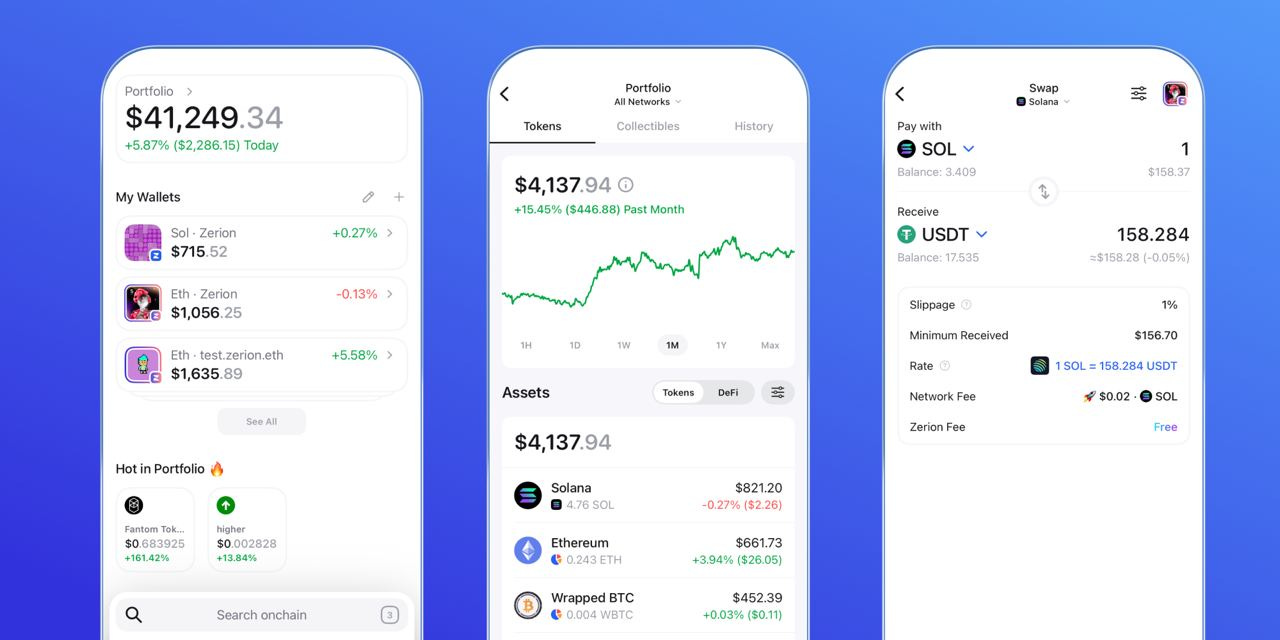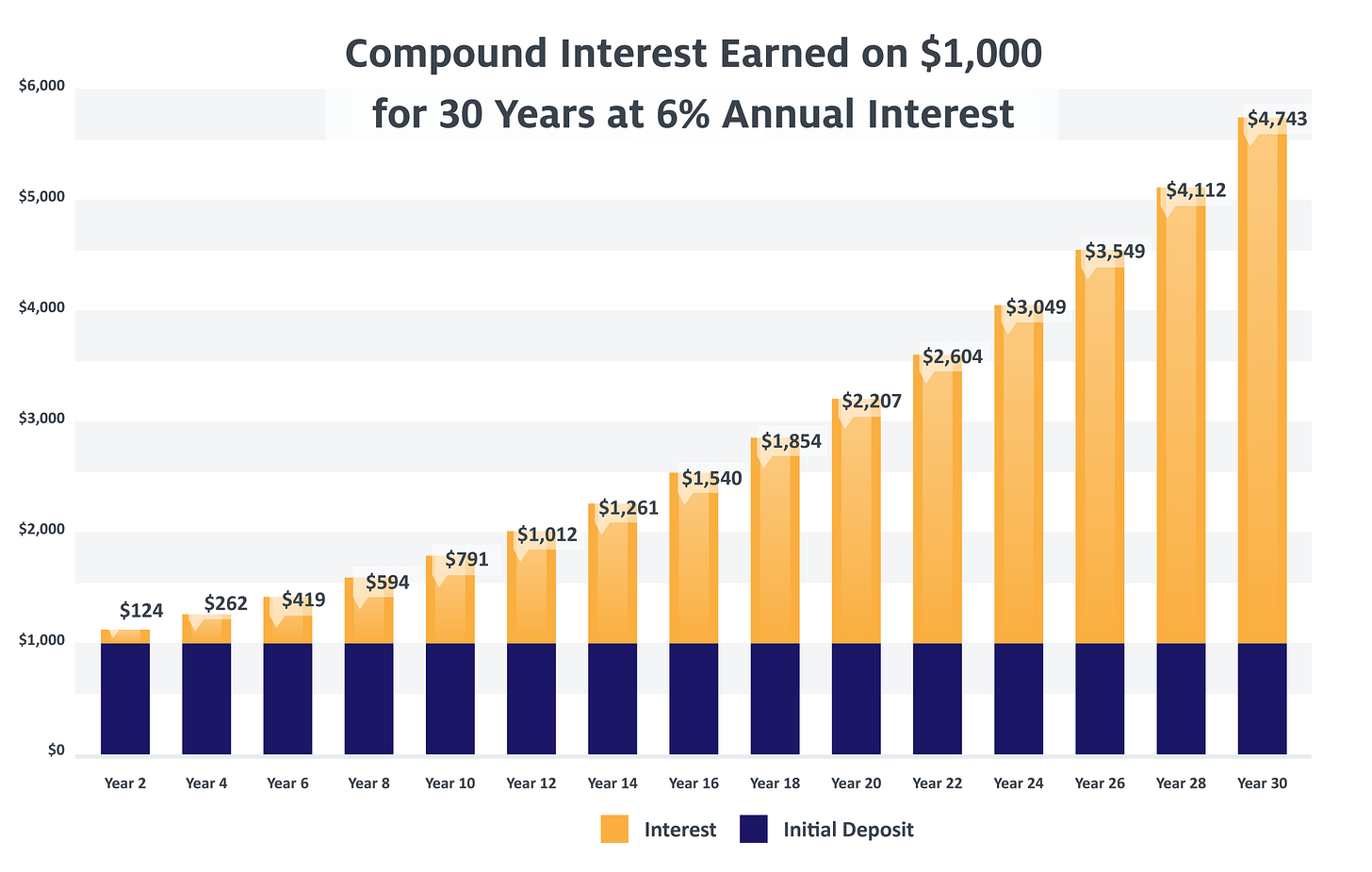Weekly Nugget of Wisdom #16
Compound interest works for everything, not just investing $$$
Welcome to another Nugget of Wisdom! A free weekly post I send out every Thursday. These are designed to be short and sweet, a quick read to (hopefully) impart some sort of wisdom, or at the very least to get you thinking about something interesting.
In case you missed it, check out my most recent premium issue 👇
Letter 68: InfoFi, is it Good or Bad?
·What is InfoFi? Why are so many people talking about it lately? Is it a good or bad thing for crypto, for social media, for the world? And how can you profit from it?
This post is sponsored by Zerion
Zerion is an OG portfolio tracker and wallet that has supported Ethereum and over 40 EVM chains. They are now moving to Solana with an all-in-one app to power all your cross-chain wallet and portfolio tracking needs.
They have a points system (and we all know what that means). Install Zerion and import your wallets and you’ll gain XP for past transactions.
Compound interest works for everything, not just investing $$$
Most of you reading this will understand the power of compound interest when investing, but just in case, these graphs illustrates the point well:
Basically, the earlier you start investing, the better. Time is your friend, and compounding results over a long time frame are exceptional, even on something like a modest 6% return.
Our mate Einstein understood this well:
But most people’s relationship and understanding of compound interest starts and ends with the financial world, and specifically, with the literal act of investing money.
I think the concept can and should be applied to so many different areas, both within and outside of finance.
A few quick examples:
1. Compounding avoidance of error
This one is pretty straightforward — too often people are looking for the next big thing, the alpha, a 100x, a 10x, etc. In trying to find these things they end up making all sorts of tiny errors, losing a few bucks here, a few bucks there. A fraction of a percent of their portfolio here and there. It all adds up. Death by a thousand cuts.
Not only are you out the money (and time) by doing this, but you’re also out the opportunity cost of simply having taken all those little chunks of money and bought Bitcoin, or a stock market index fund, or hell, even having it sit in stables or a bank account earning 5-6% yield.
Doing nothing is almost always the best trade. Avoid those errors, because errors compound too.
2. Compounding Health & Fitness
Another straightforward and obvious one, and something that is certainly easier said than done, but I find that most people don’t necessarily think about the compounding effects of your health & fitness efforts. Generally, people want to get in shape to feel a bit better, to have more energy, to look better, etc.
It’s with a short to medium term goal. But what happens when you actually start eating well and working out? You start wanting to do more of it. You go outside more, for more walks, get more fresh air. Your brain starts working better, your work life probably gets better. You’ll be sleeping better.
You’re more likely to find a partner, more likely to try new activities, more likely to simply have a more fulfilling and enjoyable life. Hell, you’ll help stave off all sorts of cognitive disorders that might hit later in life, and your 60s, 70s, 80s, and 90s are probably going to be a lot more enjoyable too.
Sure losing a few kilos is great, but the compounding effects of prioritizing your wellbeing are about as great as they come — even more impactful than compounding some money and having bazillions in your bank account.
What’s the point of having an 8 or 9 figure bank account if you’re a sedentary potato with a failing memory by the time you’re 70?
3. Compounding Writing (or any skill)
When I first started writing it would take me three hours to write something the length of this current post. Today, this has taken me about 25 minutes, and the quality is 10x better than the garbage I was putting out back then.
It can seem really rough when you’re starting out learning any new skill. Progress usually seems slow, you doubt yourself, your output is generally awful, and most people want to give up (and most do).
But if you stick with it you’ll usually reach an inflection point where the curve starts its exponential rise up and the fruits of your labor begin to pay off.
Sticking with it is the hard part.
It’s tougher to see the impact of compound interest with the intangible things (vs investing where you can literally see the results, or plug numbers into a calculator and forecast the future), but any skill, any thing, can be compounded.
It’s usually unsexy and boring, just like compounding at 6% is. But if you can eliminate some mistakes, maybe up your return to a still-modest 8-10%, and apply the concept to many other areas of your life, future-you is going to absolutely love you for it.







